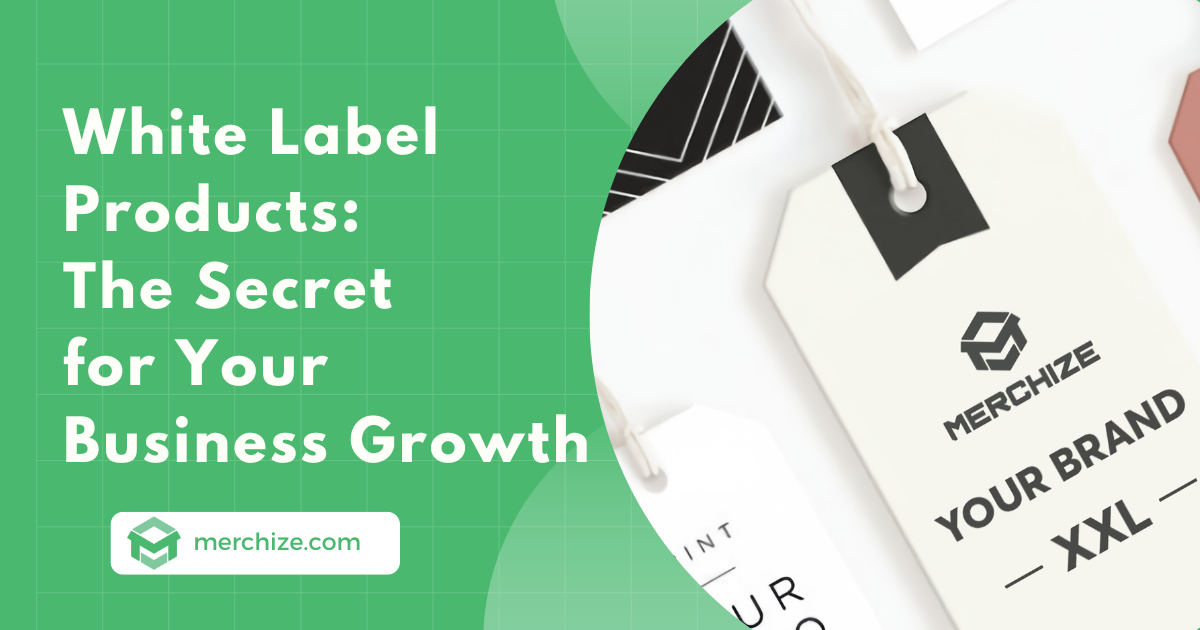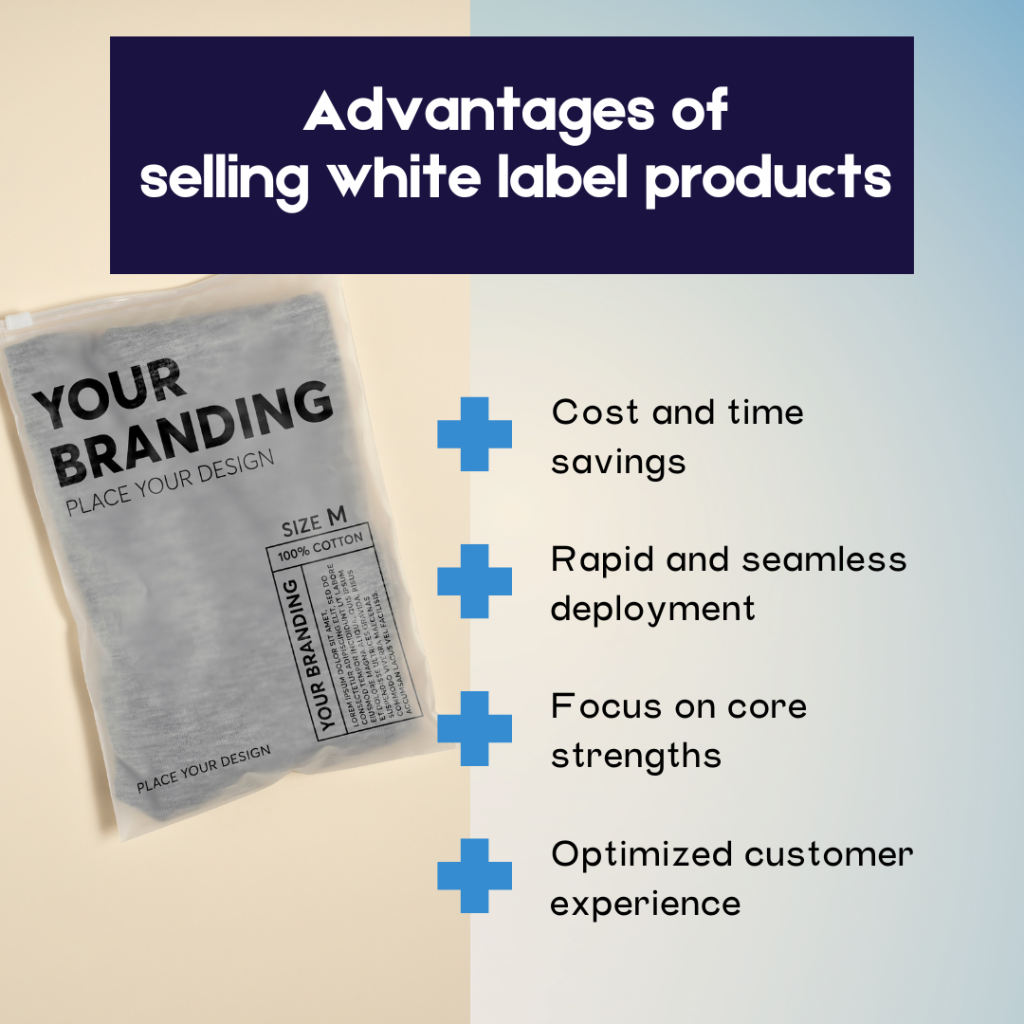Contents
White labels products are mass produced items that sellers can customize into their own product. Though this business model has gained significant traction in recent times, especially in the e-commerce realm, many people still confuse the concept of white labeling with private labeling. In this blog post, we’ll clarify the key points you need to know about white label products and highlight some promising options to kickstart your business in 2025.
What are white label products?
The term “white label" refers to products that are manufactured by one company but branded and distributed by another. It gets its name from the idea of a plain white label on the packaging that the distributing brand can fill in with their own information.
White label products can be ordered in bulk quantities as needed. They are essentially regular, mass-produced items like cosmetics, apparel, consumer goods, electronics, and more. The key difference is that they are then customized, often by adding a logo or brand name, for specific companies to market as their own.
In essence, white labeling allows businesses to have products manufactured by a third party but sell them under their own brand identity and packaging. It provides an avenue for companies to offer a wide range of goods without having to set up their own production facilities for every single item.
Who will benefit from white label products?
White label products offer a flexible and convenient solution that caters to a wide variety of businesses, including:
- Print-on-demand (POD) businesses: White labeling allows POD businesses to offer customized printed merchandise without the need for in-house printing facilities.
- Dropshippers: For dropshipping entrepreneurs, white label products provide an avenue to sell a diverse range of products under their own brand without the overhead of holding inventory.
- Startups and small businesses: Businesses with limited startup capital can turn to white label products, enabling them to offer their own branded goods without the hefty investments required for manufacturing.
- Brand-centric companies: Companies that prioritize brand building and customer service can outsource product production and focus their resources on strengthening their brand identity and customer experience.
You might also be interested in: Cheapest Print On Demand Companies: Price – Quality Analysis
White label products’ market potential
According to Grand View Research, the global white label market was valued at a jaw-dropping $4.6 trillion in 2021. It can be seen that the market potential for white label products is sustainable and continues to grow across various industries. Let’s dive in some key insights and data of the market size and growth prospects of white labeling:
- Online shopping is the new normal, and the e-commerce/retail realm is a fertile hunting ground for white label products. Smart businesses are embracing white labeling to offer unbeatable product ranges without manufacturing overheads.
- Print-on-demand (POD): This industry lives and breathes white label merch like t-shirts and mugs – and it is booming! It was valued at $6.4 billion in 2022, and is projected to reach $64.3 billion by 2032 according to a report by Fortune Business Insights.
- Cosmetics and personal care: The cosmetics and personal care industry is another major player in the white label game. A report by Industry Research Biz estimates that the global white label cosmetics market was worth $8,580 million in 2023 and is anticipated to reach $14,090 million by 2032.
- Food and beverage: White labeling has also made its mark in the food and beverage industry, allowing businesses to offer their own branded products without the need for costly manufacturing facilities. According to Persistence Market Research, the global white label food and beverage market is projected to reach a mouthwatering $183.04 billion between 2023 and 2028.
These market projections and growth rates highlight the increasing demand for white labeling. So if you’re about to step into this promising market, it’s now time to make a move.
Advantages of selling white label products
White label products offer a blank canvas where sellers can freely stamp their brand identity with ease. Some key benefits of selling white label products include:
- Cost and time savings: If you were to create a product from scratch, you’d need to invest time in training employees, recruiting talent, conducting research, prototyping, and developing the product before bringing it to market. With white label products, businesses can bypass these hurdles, saving both budget and valuable time, while still retaining the ability to build their brand from the ground up.
- Rapid and seamless deployment: White label products are pre-designed and primed for branding. For instance, in the print-on-demand sector, sellers simply need to send their design to the production facility to fulfill orders without lengthy wait times. The same process applies for white label cosmetics, household appliances, and fast-moving consumer goods that often have standardized designs, allowing businesses to effortlessly customize and build their brands around them.
- Focus on core strengths: By outsourcing research and production, you can concentrate your efforts on your core competencies, such as market analysis, marketing, customer research, and more. This enables them to deepen your expertise and deliver greater value to your customers.
- Optimized customer experience: White labeling has proved an ability to attract loyal customers and foster stronger relationships through effective and optimized marketing programs. The cost savings achieved by outsourcing production also allow sellers to allocate more resources toward marketing your products and services effectively, ensuring you remain attuned to customer needs and deliver exceptional experiences.








